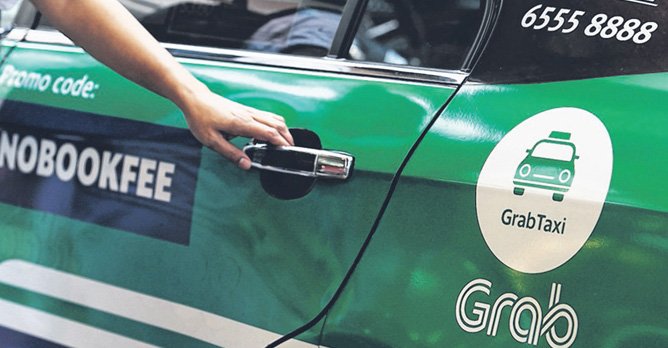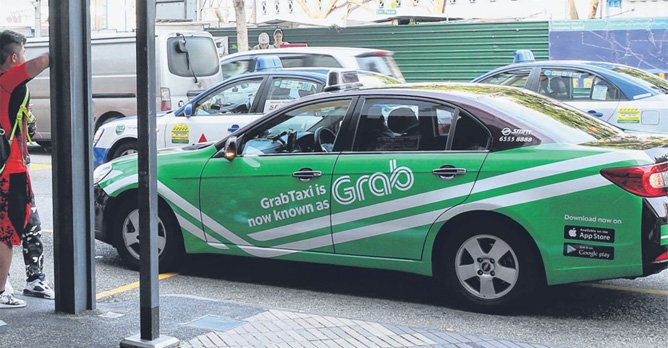New Bill seeks powers to regulate private-hire pricing
09 Jul 2019|14,900 views
The Public Transport Council (PTC) will have powers to regulate private-hire vehicle operators under the new Point-to-Point (P2P) Passenger Transport Industry Bill tabled yesterday. The Bill will give the PTC - which currently regulates bus and train fares - the discretion to set a pricing policy for fares charged by ride-hailing operators such as Grab and Gojek.

Right now, ride-hailing operators are free to set their own fares, and how these are set - including during peak hours when so-called surge pricing is likely - is largely opaque. As part of a move to license P2P passenger services since the arrival of ride-hailing services in 2013, the Government will put street-hail and ride-hail fares under the purview of the PTC.
Although taxi fares are not regulated, the council currently has an overview of fares. Taxi operators must inform the council if they wish to adjust fares. Ride-hailing operators, however, are not required to do the same.
In a review of the P2P passenger service that has taken over a year, the LTA proposes to issue two operating licences - one for street-hail services, and another for ride-hail services. An operator may be allowed to hold two licences. Industry players expect the changes to harmonise regulations governing taxis and private-hire players, and create a more level playing field.

The spokesman said the Bill, which will be debated in Parliament next month, will enable the LTA to structure regulations around services provided, and provide sufficient regulatory oversight to protect the safety and interests of commuters and drivers.
The Bill also seeks to facilitate an open market that supports the development of innovative P2P services.
The Public Transport Council (PTC) will have powers to regulate private-hire vehicle operators under the new Point-to-Point (P2P) Passenger Transport Industry Bill tabled yesterday. The Bill will give the PTC - which currently regulates bus and train fares - the discretion to set a pricing policy for fares charged by ride-hailing operators such as Grab and Gojek.

Right now, ride-hailing operators are free to set their own fares, and how these are set - including during peak hours when so-called surge pricing is likely - is largely opaque. As part of a move to license P2P passenger services since the arrival of ride-hailing services in 2013, the Government will put street-hail and ride-hail fares under the purview of the PTC.
Although taxi fares are not regulated, the council currently has an overview of fares. Taxi operators must inform the council if they wish to adjust fares. Ride-hailing operators, however, are not required to do the same.
In a review of the P2P passenger service that has taken over a year, the LTA proposes to issue two operating licences - one for street-hail services, and another for ride-hail services. An operator may be allowed to hold two licences. Industry players expect the changes to harmonise regulations governing taxis and private-hire players, and create a more level playing field.

The spokesman said the Bill, which will be debated in Parliament next month, will enable the LTA to structure regulations around services provided, and provide sufficient regulatory oversight to protect the safety and interests of commuters and drivers.
The Bill also seeks to facilitate an open market that supports the development of innovative P2P services.
Latest COE Prices
August 2025 | 1st BIDDING
NEXT TENDER: 20 Aug 2025
CAT A$102,009
CAT B$123,498
CAT C$70,001
CAT E$122,334
View Full Results Thank You For Your Subscription.



















